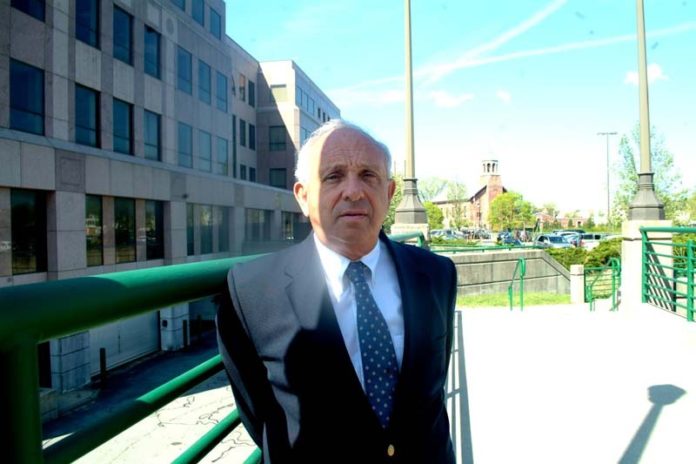
Rhode Island has a good shot at employing graduates of four new programs designed to train registered nurses, physician assistants and nurse practitioners, educators in these fields say.
Two new physician-assistant programs expect clinical connections to help retain graduates as workers, while an online RN to Bachelor of Science in Nursing program will cater largely to professionals who are already here and want to enhance their credentials. And a new doctor of nursing-practice program expects to produce workers throughout the region.
As primary care doctors diminish in number, the demand for higher credentialing of other health care professionals increases, particularly with bachelor’s degrees for RNs. At the same time, community-based care is expected to gain traction over acute care in hospitals and emergency rooms, educators say.
In that landscape, projections from the R.I. Department of Labor and Training show that by 2020, these three health care occupations will grow faster than 11.2 percent, the average rate for all occupations.
Jobs for health care practitioners are expected to grow 15.8 percent, said Donna Murray, assistant director of labor-market information for DLT. Physician-assistant jobs are projected to grow 13.8 percent and registered-nurse jobs could increase 15.7 percent, she said.
Nationally, the U.S. Bureau of Labor Statistics projects physician-assistant job opportunities will increase by 38 percent; nurse practitioners’ employment outlook will improve by 31 percent through 2022 and RNs’ outlook will grow by 19 percent.
Statistics such as these and other research led to the creation of these new programs, educators say. “The nurse practitioner’s role is going to be revolutionary,” said Sharon Stager, a nurse practitioner who is also interim director of the new doctor of nurse-practitioner program at Salve Regina University and a full-time lecturer within the school’s department of nursing. “They work in collaboration with physicians but are not delegated to by the doctors. An RN cannot develop a plan of action for treatment the way a nurse practitioner can.”
Though smaller in the number of graduates they will produce, two new programs for student physician assistants will add to the mix: one at Bryant University, set to start with 32 students in January 2015, and one just beginning June 2 with 24 students at Johnson & Wales University. Physician assistants are licensed to practice medicine as part of a team of physicians.
Directors for these programs say their graduates are more likely to stay in Rhode Island because the clinical portion of their study will be arranged mostly with Rhode Island health care providers, giving both the opportunity to size each other up and make career connections.
“Students will tend to stay in the state where they receive their clinical training [because] they develop relationships with their preceptors and the health care system,” said George Bottomley, director of the Center for Physician Assistant Studies at JWU, assistant dean for the university and a full professor at the center.
What that means, say Bottomley and Rick Brooks, executive director of the Governor’s Workforce Board, is that the student and clinician can make connections that translate into jobs locally.
Robert “Jay” Amrien, who serves as program director of Bryant’s Master of Science in Physician Assistant Studies, says Bryant’s largest clinical partners will be Memorial and Kent hospitals in the Care New England System in Rhode Island as well as South Coast hospitals in Fall River and New Bedford.
At the New England Institute of Technology, Douglas Sherman, senior vice president and provost, says students in the online RN-to-BSN program – which began in 2012 and has an on-the-ground clinical capstone, or final project – can take their clinical studies anywhere in state, while out of state students can take them out of state if desired.
At the same time, the RNs who are looking to earn their bachelor of science in nursing degree are already practicing here and are likely to stay put, he said.
In Salve Regina’s doctoral program, which starts in September, Department of Nursing Chairwoman Eileen Gray said the school made a conscious decision to focus on one area: family nurse practitioner, because it covers birth to death.
“We wanted to make sure we provided a degree that would fill a need,” she said. And for students applying who are from Rhode Island, “I fully expect them to work in Rhode Island, [and] stay in Rhode Island.”
Future redevelopment of the former South Street Power Station in Providence into an academic and nursing-school complex also has the potential to help transform the composition of the state’s workforce, says Michael Paruta, director of workforce development for the Care New England health system.
“While students are still in academia, they begin training together in teams, [then] when they come out, work in the hospital environment,” Paruta said. “You’ll see some of that coming to fruition at the new building.” •












